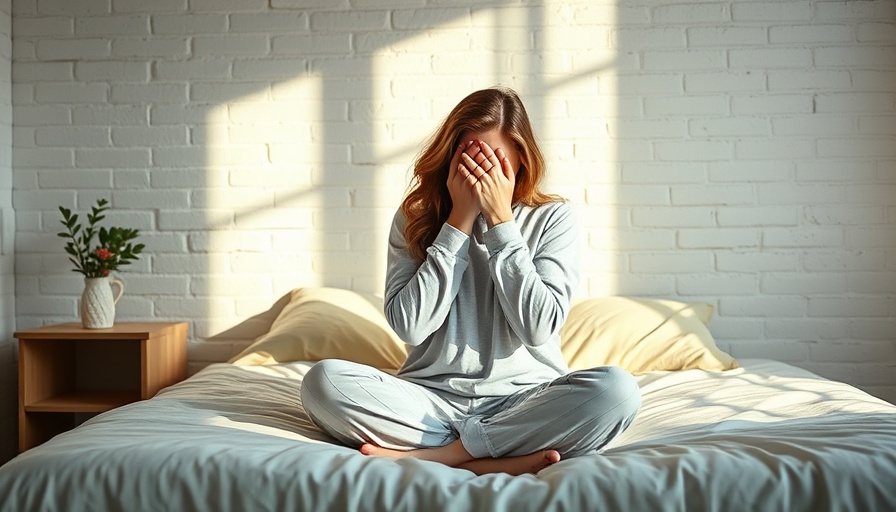
Understanding Melatonin: The Sleep Aid That’s Took Too Frequently
Melatonin has become a household name in the realm of sleep aids, often viewed as the secret weapon for those battling insomnia or sleepless nights. It’s vital, however, to question: Are we becoming too reliant on this hormone? Melatonin, naturally produced by the brain in response to darkness, plays a crucial role in regulating our circadian rhythms. Its synthetic forms provide a quick-fix option for sleep-deprivation fears, especially among busy professionals and caregivers seeking restorative rest.
Breaking Down Dependency Myths
While concerns about becoming dependent on melatonin have been raised, it's important to note that scientific insights suggest otherwise. Experts like Dr. Deirdre Conroy and Dr. Marri Horvat firmly assert that melatonin does not cause addiction. Instead, it’s our body’s natural inclination to seek a balance in its hormone levels that determines our sleep health. When faced with chronic sleep issues, habitual use of melatonin may indicate a need for a deeper exploration of underlying causes rather than simple reliance on the supplement.
Dosage Distinctions Matter
Another crucial aspect couples with frequency: the dosage. As mentioned by Dr. Horvat, many people are not aware that a lower dose of melatonin (between 0.3 and 0.5 mg) is scientifically proven to be more effective than larger doses, which can lead to side effects like grogginess or disrupted sleep patterns. Understanding the right amount can pave the way for a more targeted use of melatonin while minimizing unwarranted complications.
Creating Healthy Sleep Habits
Experts recommend reframing your sleep hygiene rather than relying solely on melatonin. Simple changes—like reducing blue light exposure in the evening and establishing a consistent bedtime routine—can align your sleep cycles with your body’s natural melatonin production, ultimately reducing the need for synthetic supplements. These holistic adjustments foster not only better sleep but a profound enhancement in well-being for caregivers, working professionals, and retirees grappling with restless nights.
Resources for a Healthier Sleep Journey
Those interested in addressing sleep disturbances should consider consulting a specialist in sleep medicine to uncover potentially misguided solutions, including excessive melatonin use. By seeking expert guidance, individuals can gain personalized strategies that go far beyond just reaching for melatonin at night.
In summary, it’s crucial for the health-conscious demographic— professionals, caregivers, and retirees alike—to understand both the healing potential and the limitations of melatonin as a sleep aid. Embracing natural habits while remaining informed can lead to improved sleep quality, minimizing the reliance on supplements.
 Add Row
Add Row  Add
Add 




Write A Comment